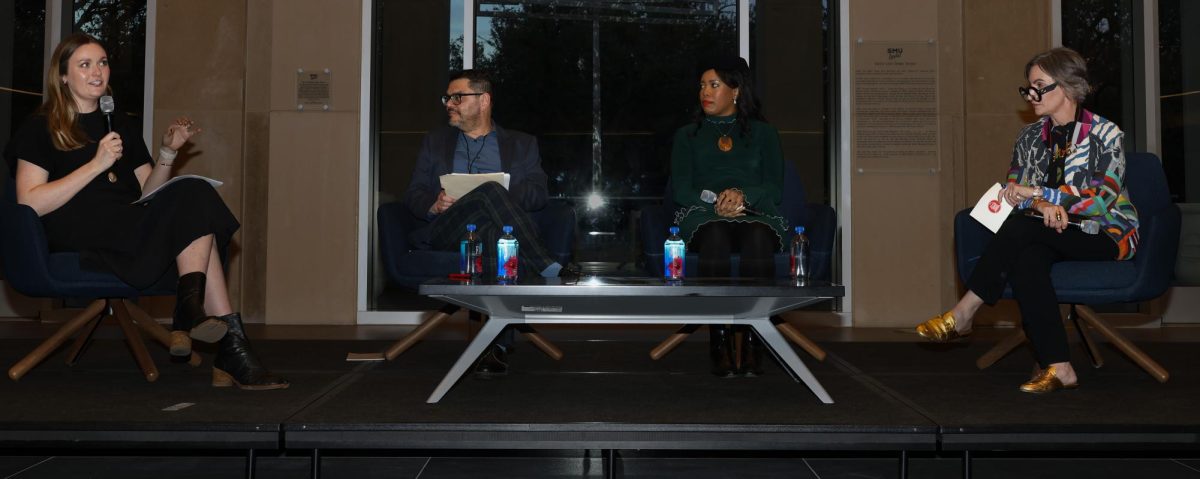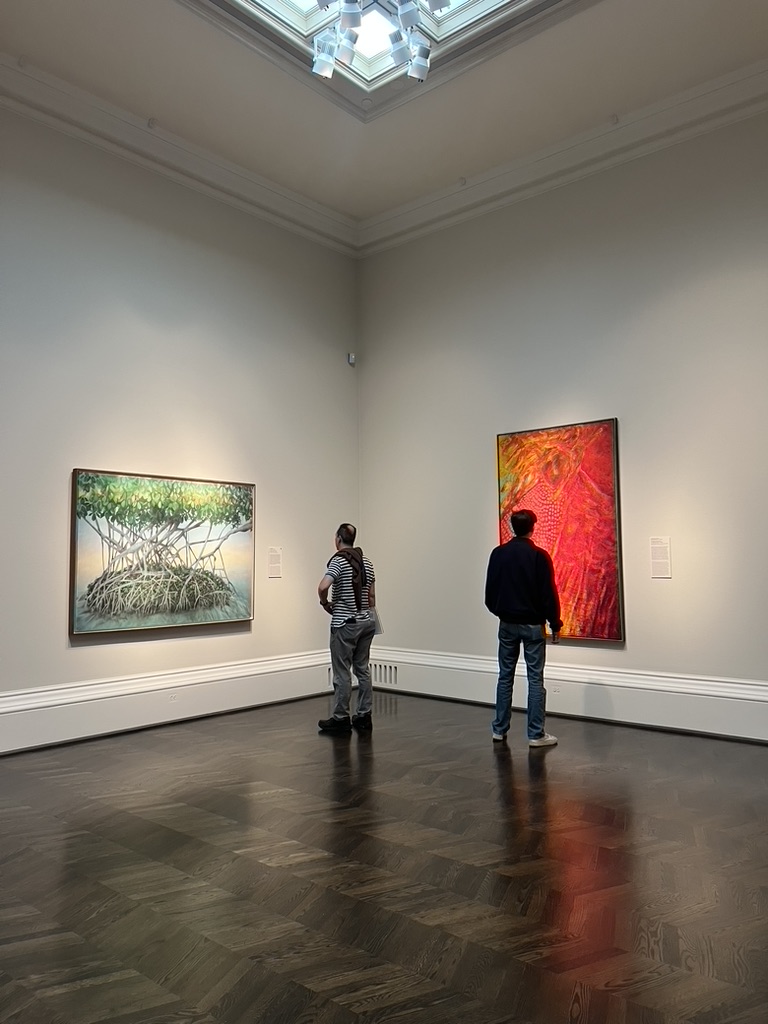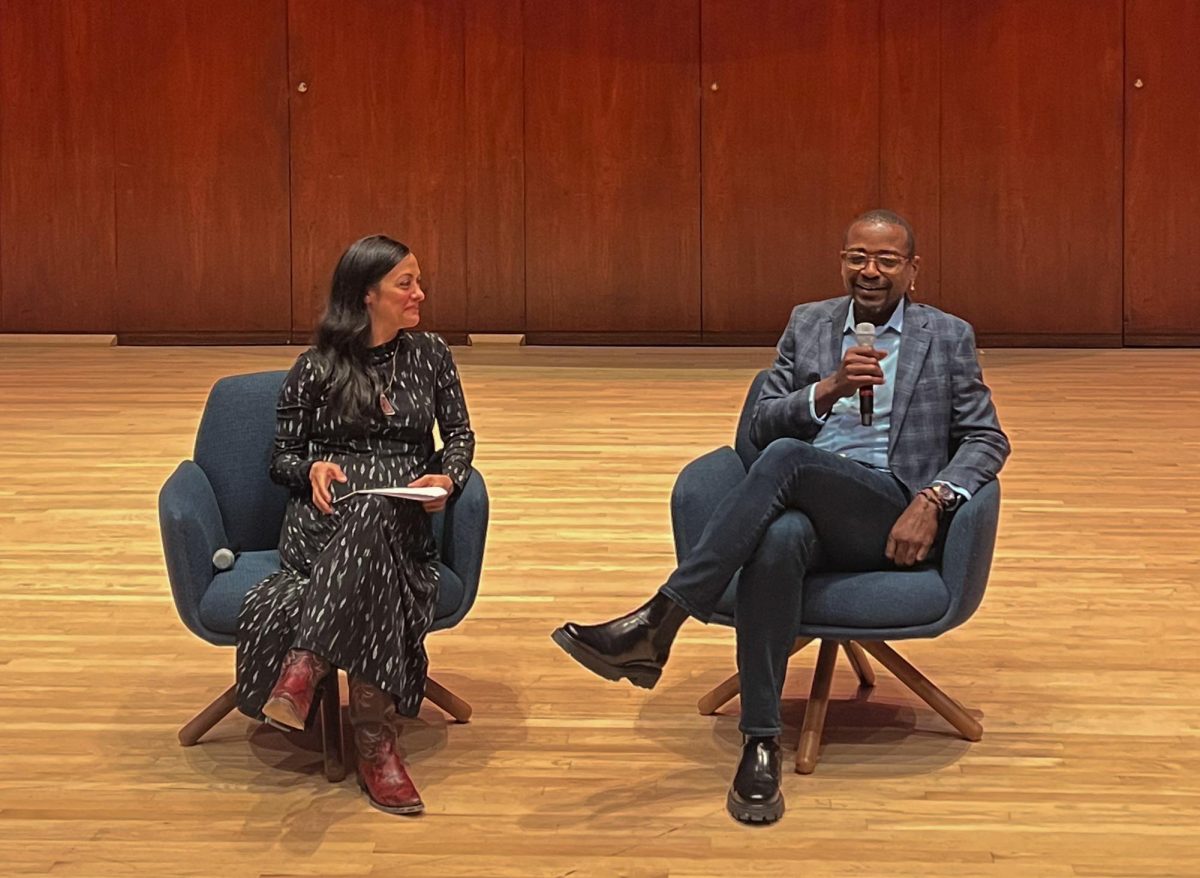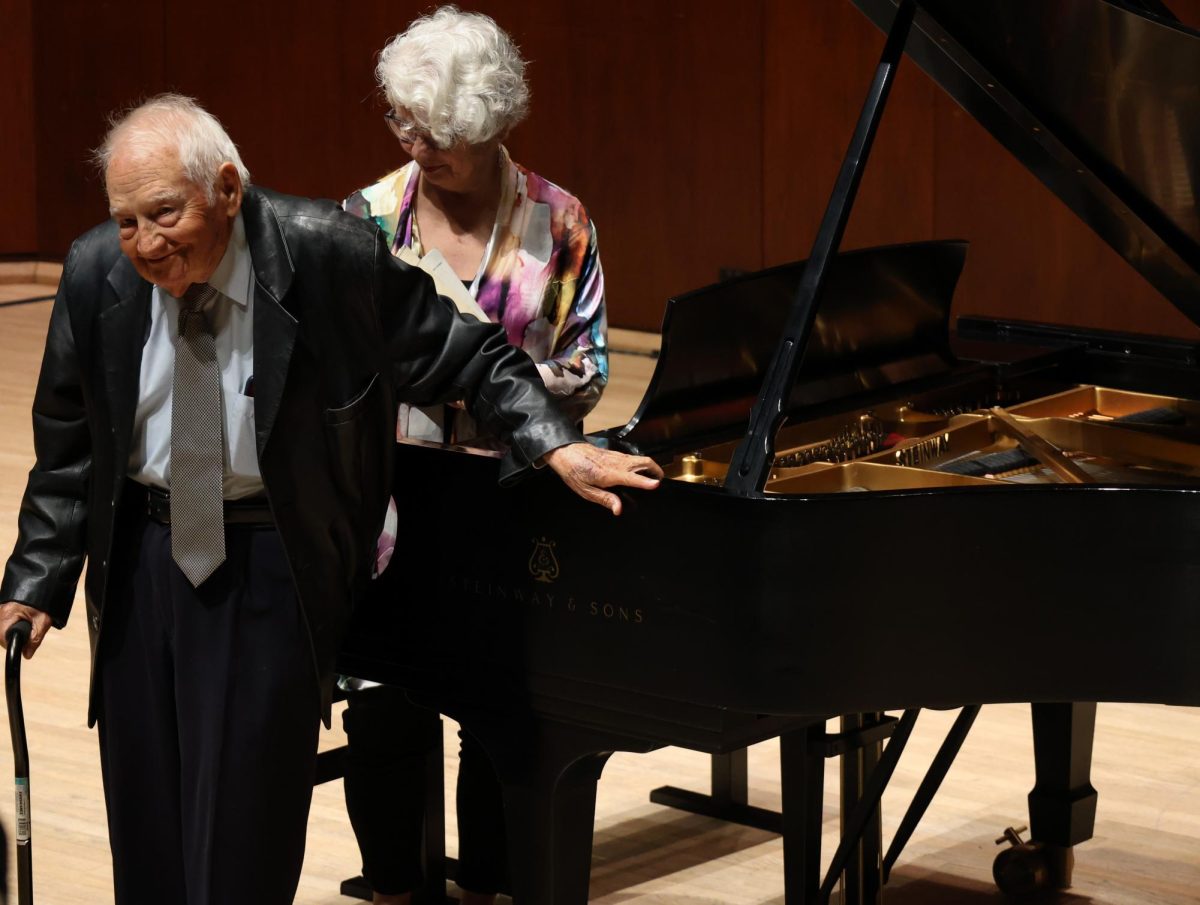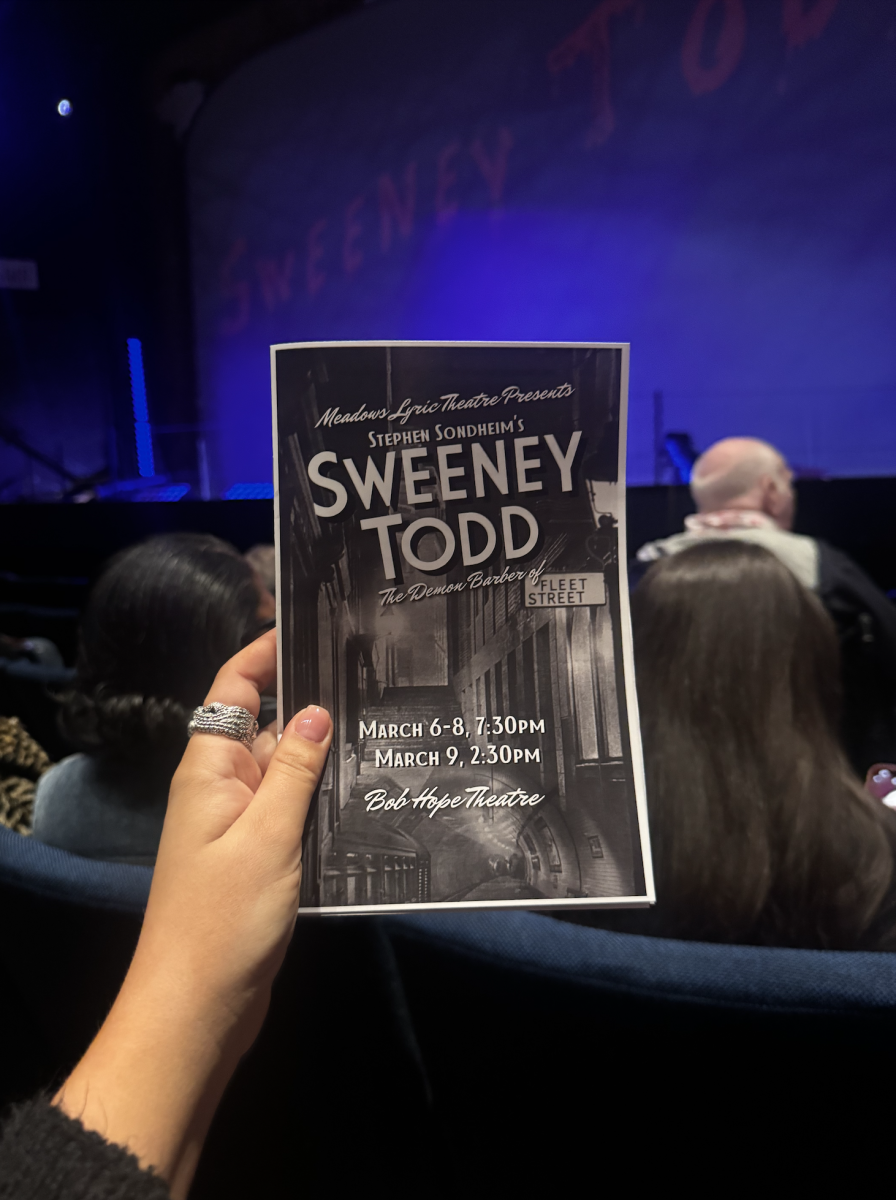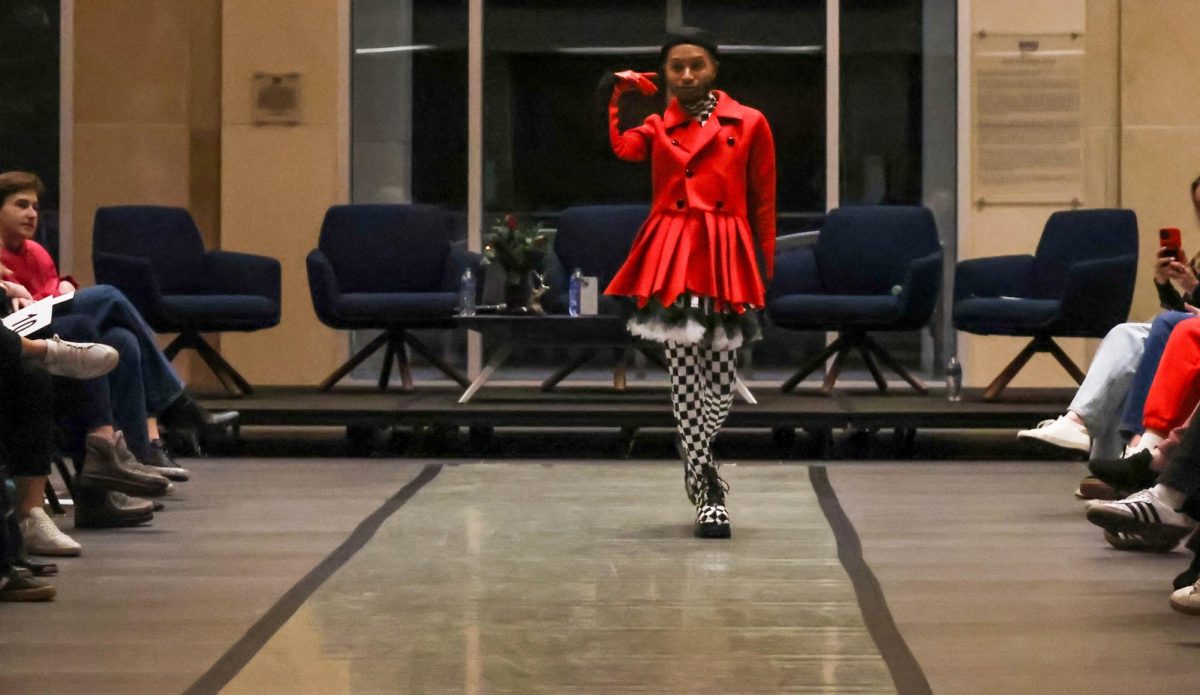A cacophony of sound bursts through the lips of SMU’s upper-level performers, piercing the steel doors of classroom B430 in the basement level of Owen Fine Arts Center. In the fray, they groan from the stomach up, filling the space with guh, guh, guh noises, and quickly after, a yodel-like waah-ohh sound. For these performers, every grunt, scream and yodel is intentional. They are a part of a sacred practice called “soul work.”
“Soul work” is a nonlinear, embodied practice that empowers its performers to think introspectively and connect spiritually with other performers and their characters. The practice is based on African oral performance, which uses call-and-response methods rather than written text to communicate with others.
Sage Floyd, a third-year graduate student pursuing an MFA, believes soul work has empowered him to confidently embody his characters in recent stage productions like Nilaja Sun’s “No Child” and Carlo Goldoni’s “The Servant of Two Masters.”
“Soul work has allowed me to find the parts of myself I wasn’t as familiar with through risk: risking to look ‘silly,’ risking to get things ‘wrong,’ risking to not ‘make sense’ in performance and exploration,” Floyd said. “Because of this invitation of risk given by professor Tiana Blair at the start of every session, I am a better performer—no, I’m a better artist.”

Culture worker and performer at Northwestern University Dr. Cristal Chanelle Truscott developed the practice more than a decade ago to not only educate performers on African-ancestral practices–such as call-and-response–but to also empower them to embrace their cultural identities and their characters.
Along with Dr. Truscott, SMU professor Tiana Kaye Blair also teaches soul work in the Meadows’ Theater Department. Currently, Blair and Truscott are the only certified soul workers in the nation, with SMU and Northwestern University being the only universities to have curriculums rooted in the practice.
Dr. Truscott has shared with performers how soul work is not just limited to African culture, and that it can empower them to reflect and appreciate each other’s lineage, Floyd said.
“Everybody came from somewhere before they came along into America, whether that’s first generation or fifth generation, and I think that comes through in the work,” Floyd said. “It’s like, ‘Oh, that’s where you are today’ or ‘that’s where you’re from,’ and it really gets the conversation going.”
This performance style allows performers to achieve a more spiritual experience, Jameson Black, a junior majoring in theater with a concentration in acting, stated in an email.
“It has definitely improved the relationship between my breath, body and voice,” Black said. “It has made my sending and receiving in performance a fully embodied experience and improved my focus, breath, vocal power and ability to change and be changed.”
New performers should consider soul work because it opens up a realm of possibilities in themselves, Courtney Godfrey, a sophomore majoring in theater with a concentration in theater studies at SMU, said in a text message.
“[Soul work] allows you to step into the space with the fullness of you, allowing you as the character to have more life,” Godfrey said.












